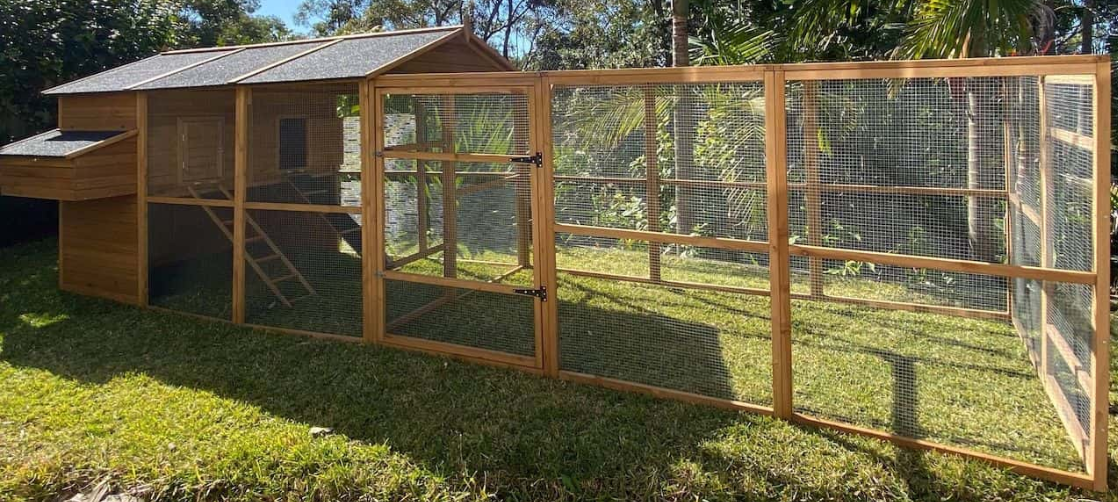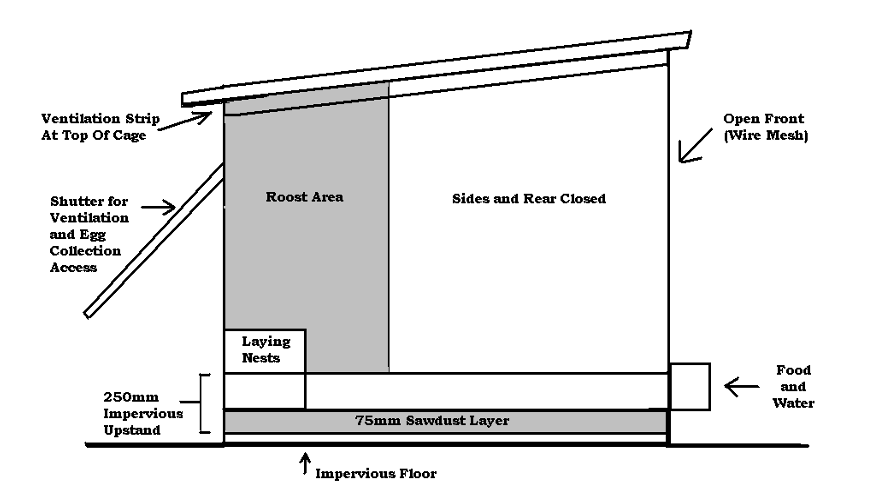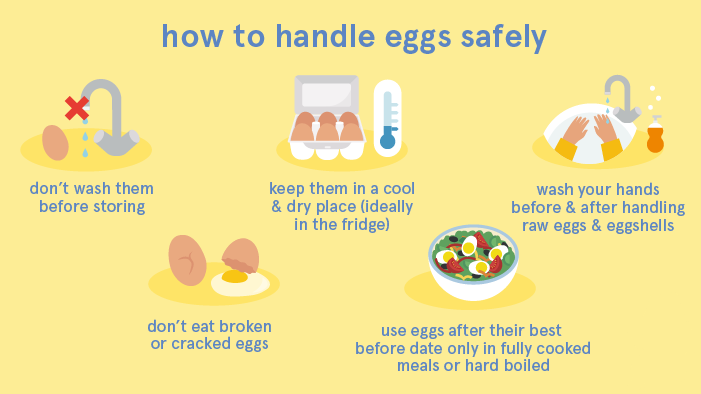Poultry

Poultry includes fowls (e.g. chickens), peafowls, turkeys, geese, ducks and other domestic fowls.
If you wish to keep poultry on your property, it is important that you are aware of the poultry types you can keep, numbers allowed, and enclosure conditions. You are permitted to keep poultry as pets or for domestic use on your property within the Shire – however, the Shire’s Local Laws have conditions relating to the way in which poultry may be kept, and there are State laws requiring all animals are kept so as not to create a nuisance.
Keeping Backyard Chickens Safely (Department of Health)
Keeping Backyard Chickens (Department of Primary Industries and Regional Development)
How many can I have?
An owner or occupier in the townsite cannot keep a combined total of more than six poultry without Shire approval. Without written approval, owners and occupiers in the townsite are also not allowed to keep any one or more of the following fowl:
- Rooster
- Goose or gander
- Turkey
- Peacock or peahen
- Gamebird (includes emus and ostriches)
Outside of the townsite, if you would like to keep larger numbers of poultry, you must register with DPIRD. This is a requirement, whether or not the poultry is being kept for commercial reasons. Owners of 50 or more poultry, or 10 or more emus and/or ostriches are required to register with DPIRD as livestock owners.
Register poultry with DPIRD
Can I have roosters or peafowl outside of the townsite?
Regardless of how many poultry you have, roosters and peafowl are only permitted where they can be kept effectively without creating a nuisance, such as on large Rural only usage blocks. These birds are the principal source of poultry-related annoyance or noise nuisances, and may have an often uncontrollable negative impact on the amenity and wellbeing of nearby residents.
Roosters and peafowl may crow or call at any time (including the night and early morning) and crowing can be as loud as 130dB (decibels) for some breeds. This is a level of noise on par with a chainsaw, and the noise of a rooster may be louder than the volume of normal conversation (60dB) at properties as far as 1km away.
Keeping poultry
Soil
It is important you make sure your soil is poultry-safe. Check the DPIRD website for information about pesticides and why some are unsafe for chickens. Soil tests can be conducted by National Association of Testing Authorities (NATA) approved labs.
Enclosures
A person who keeps poultry or permits poultry to be kept should ensure that:
- No poultry is able to approach a house, street, public building, or place where food is stored, prepared, manufactured or sold;
- All poultry is kept in properly constructed and securely fastened enclosures;
- Structures or enclosures have an otherwise obstructed area of at least 30 square metres available;
- No poultry is able to approach within a metre of property boundaries; and
- All enclosures or cages are kept clean.

Roosting boxes and sheds
Sheds should be constructed in a sound and weatherproof manner, with a floor of a suitable leak-proof material such as concrete, brick paving or compressed limestone (if the shed is not movable). Other requirements are listed below.
- Frames: timber, steel or brick
- Cladding: sheet metal, brick, weatherboard, or materials that are structurally sound and cleanable
- Roofs: sloped to allow for water drainage
- Height: between 1.5m to 2.0m
- Area: should allow for 0.3m² for each bird kept
- Floor: covered with a layer of dry sand or sawdust at least 75mm deep that is changed regularly (at least once every 6 months or when directed)
- The shed should allow for adequate ventilation in hot weather
- Effective rodent control should be in place

Recommended design of a domestic chicken shed
Manure
Chicken manure from residential backyard chickens may be used in the garden, but best practice is to compost it first as a "treatment" due to its high ammonia levels. Do not apply it directly to food crops.
Consider your neighbours
Occasionally, Shire officers become involved in compliance issues, and cooperation between neighbours and with our officers is essential to resolving issues. Where formal complaints are received and when there may be a non-compliance or health nuisance, an investigation will be conducted.
If you are not successful in resolving any relevant issues with your neighbours, you may contact us in writing. Please include:
- Where the poultry or rooster is located
- Details of the issue
- How is it affecting you
- Your name and contact details
Selling eggs
The sale of food on any scale is regulated under the Food Act 2008 and Australian Food Standards Code. As an egg producer, you are responsible for managing food safety hazards from the time eggs are laid until they leave your control.
Proper egg production and handling will help make sure your eggs are safe for human consumption. It is important to remember eggs are a potentially hazardous food.
Egg Sellers and Egg Safety Guide
If you are interested in selling your chickens' eggs:
- Contact the Department of Health to obtain a unique identifier for the marking of eggs and egg products (call the Food Unit on 9222 2000 or send an email).
- Submit a Food Business or Premises Registration form to the Shire.

Commercial
The information on this page relates to keeping poultry domestically. Poultry farms are only permitted in areas of the Shire that are zoned accordingly, and planning approval/a building licence are required for any new poultry farm. For enquiries regarding poultry farming, please contact the Shire’s Planning Department.
For a comprehensive listing of legislation that must be complied with, visit the DPIRD website.